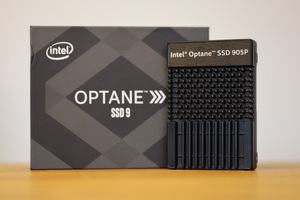Intel is discontinuing pure Optane memory drives for end customers
Source: Hardware Luxx added 18th Jan 2021Intel has informed its customers via Product Change Notification (PCN) that most of the SSDs for end customers will be discontinued with Optane memory. This concerns the Optane 905 P, Optane 900 P and the hybrids of Optane Memory and classic NAND the Optane H 10. Intel takes the last orders in mid-January. Only the latest Optane H 20 will be continued, but this will only be available in the second quarter 2021.
Intel describes and justifies the procedure in the PCN as follows:
“Intel will not provide a new large capacity Optane Memory SSD as a transition product for the client market segment. Intel will focus on the new Optane Memory H 20 with Solid State Storage for the client market segment. “
The Optane – 800 – and Optane – 900 – series will be the last of its kind for the time being. While these SSDs were used as a PCI Express expansion card and U.2 drive, the Optane H 20 is an SSD in M.2 format that has a large QLC -3D-NAND combined with the Optane Memory. This will mainly be used in notebooks, while some OEMs also use it for desktop systems. The Optane memory serves as a fast cache, while the NAND acts like in any other SSD.
Intel’s memory business is currently on the move. Recently, Intel parted with its NAND division and sold it to SK Hynix. However, the takeover is not yet complete.
At the Memory and Storage Day in December, Intel presented its product strategy for the year 2021. Intel is already concentrating mainly on the server business. This strategy continues with the settings of the end customer version of the Optane SSDs. In the server market, Intel apparently sees a greater chance for the Optane Memory, which in the form of the Optane DC Persistent Memory is seen as an interim solution between DRAM and fast SSDs. Intel will continue to manufacture the Optane memory itself in-house and we are already working on the next generations.
